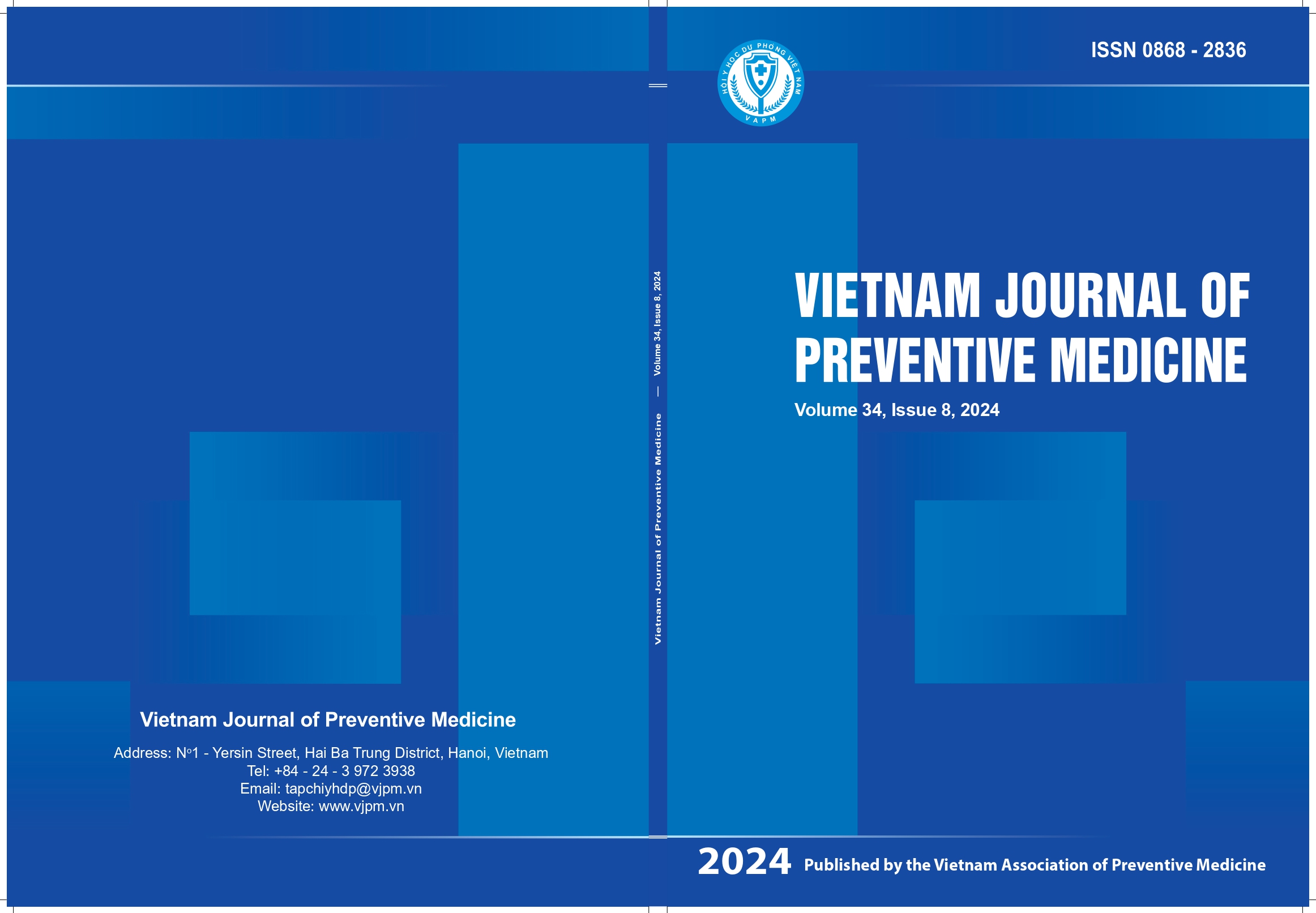Neonatal jaundice due to unconjugated hyperbilirubinemia in Tra Vinh province, Viet Nam: a Hospital-based retrospective cohort study
DOI:
https://doi.org/10.51403/0868-2836/2024/2145Keywords:
Neonatal jaundice, hyperbilirubinemia, ethnic health disparities, healthcare equalityAbstract
This study aimed to investigate the incidence of neonatal jaundice caused by unconjugated hyperbilirubinemia in Vietnam. We conducted a retrospective cohort study at Tra Vinh Obstetrics and Pediatrics Hospital from July 2022 to June 2023. The cohort included 298 neonates who underwent bilirubin and complete blood count tests. The overall incidence of neonatal jaundice was 15.10%. Neonates with infections had a notably higher likelihood of developing jaundice, with an odds ratio (OR) of 2.594 compared to their non-infected counterparts. Premature neonates also exhibited a higher incidence of jaundice, with an OR of 3.579 compared to full-term neonates. Our study has uncovered significant findings that shed light on neonatal jaundice’s incidence and risk factors. We found that neonates with infections, premature neonates, and those experiencing respiratory distress are at a higher risk of developing jaundice. These findings underscore the importance of vigilant monitoring of neonatal jaundice and the need for tailored preventive strategies, particularly for at-risk groups. For instance, the higher incidence of jaundice among premature neonates suggests the need for more intensive monitoring and early intervention in this population. This study highlights the necessity of addressing neonatal jaundice with appropriate care interventions to mitigate health disparities and improve neonatal outcomes.
Downloads
Downloads
Published
How to Cite
Issue
Section
License
Publication License No 150/GP-BTTTT signed on May 8, 2014;
Electronic Publication License No 322/GP-BTTTT signed on June 15, 2016.


